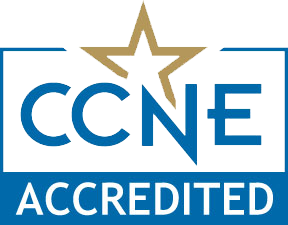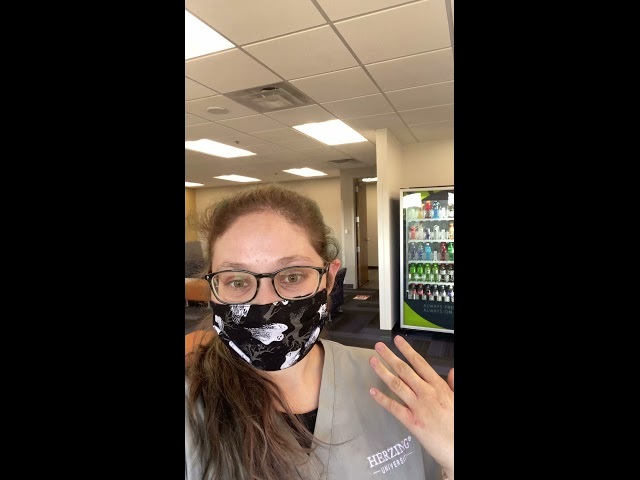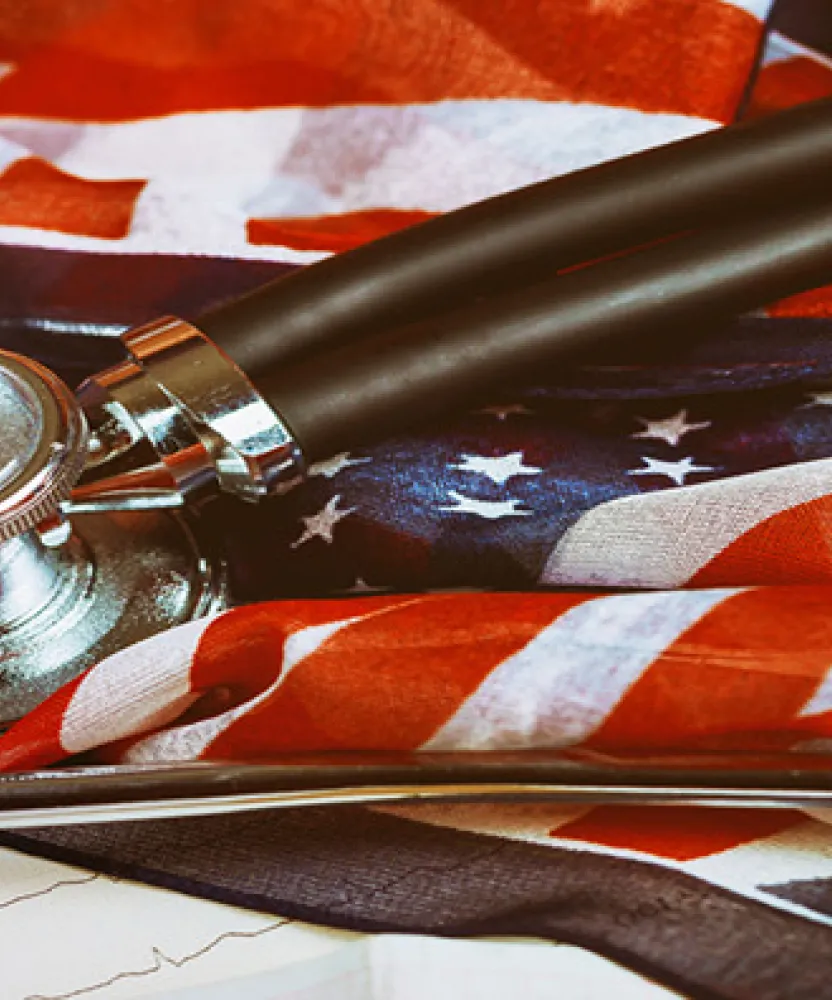Go from CVT to RN online with Herzing University
| Accreditation | CCNE accredited BSN Bridge Option,† Accredited by the Higher Learning Commission |
|---|---|
| Finish faster | Designed for licensed cardiovascular technologists; take advantage of your current licensure and experience and earn a nursing degree quicker than a traditional pre-licensure program |
| Format | Core didactic (lecture) courses are delivered 100% online, including real-time and on-demand courses you can take in evenings/nights, weekends, or whenever it's convenient for you |
| Hands-on prep | Hands-on learning includes on-site clinicals and intensives requiring attendance at a designated Herzing or partner site |
| Eligibility | Available for enrollment in select states1 |
| QuickPaths | Transfer credit, stackable credentials, and adaptive learning technology build a faster pathway to a higher education with Herzing University |
Learn More Today!
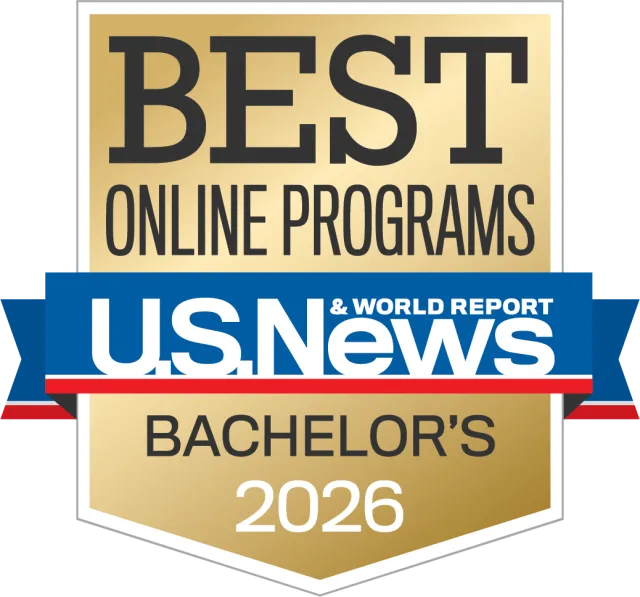
Ranked by U.S. News & World Report as one of the best online bachelor's programs in 2026
ASN/BSN Bridge Options for Cardiovascular Technologists - Online!
Educational pathways from CVT to RN with Herzing University include both ASN and BSN programs preparing you for a career as a registered nurse. The online degree programs provides students with fundamental knowledge and skills in the nursing process, medical-surgical nursing, managing care, evidence-based practice, and much more.
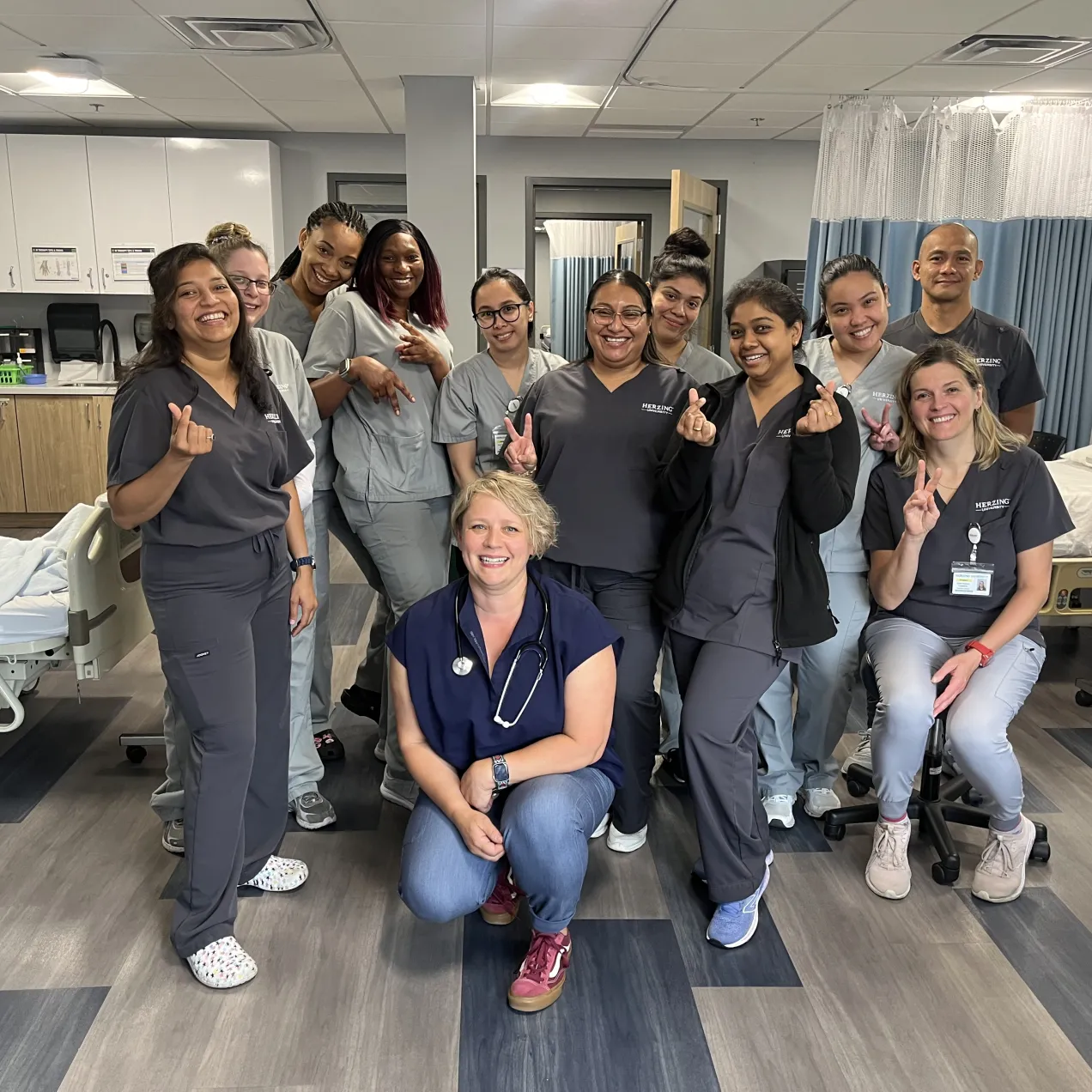
Career-focused curriculum
Discover the crucial knowledge and skills required to succeed in your work and build a foundation for continued career growth.
Flexible schedule
We work hard to help you maintain school-life balance, striving to be as flexible as possible for busy non-traditional students.
Virtual services
Access to extensive virtual services, including academic advising, tutoring, support services, technical support and library services.
Lifelong support
We support your ongoing career advancement by providing comprehensive, personalized student services with lifelong career coaching.
Rolling admissions
No application deadlines to worry about. Apply when you’re ready and prepare to get started soon.
Course & Curriculum Details
| Program | Months i | Credit |
|---|---|---|
| Associate of Science in Nursing (ASN) - Bridge Option | 20 | 72 |
| Bachelor of Science in Nursing (BSN) - Bridge Option | 28 | 120 |
i. Average number of months for students to complete program
ASN Bridge Option curriculum
Required Courses in Nursing
33.00 semester credit hours are required.
Required Courses in General Education
Students enrolled in this associate degree program must complete a minimum of 26.00 semester credit hours. 6.00 Semester Credit Hours in Communications EN 104 English Composition I EN 111 Information Literacy 3.00 Semester Credit Hours in Humanities HU 140 Cultural Diversity 3.00 Semester Credit Hours in Mathematics MA 109 College Algebra 3.00 Semester Credit Hours in Behavioral Science PS 105 Developmental Psychology 11.00 Semester Credit Hours in Science SC 154 Anatomy and Physiology I for Nurses SC 166 Microbiology SC 254 Anatomy and Physiology II for Nurses Courses transferred from other accredited colleges may also be used to meet these requirements. Science courses being transferred from other accredited colleges must meet the nursing program science requirements.
Special General Education Grading Requirements
The following general education courses must be completed with a grade of "C" (70%) or better for a student to continue in the nursing program. MA 109 College Algebra PS 105 Developmental Psychology SC 166 Microbiology The following science courses must be completed with a grade of "B" (80%) or better. Only two attempts are permitted for each course and a student who fails to successfully complete in the maximum attempts is subject to dismissal from the nursing program. SC 154 Anatomy and Physiology I for Nurses SC 254 Anatomy and Physiology II for Nurses A student who is dropped from the nursing program for failing to achieve the minimum grade specified in the courses listed above, but who otherwise meets the academic standards of the University may transfer to another Herzing degree program and/or may appeal to reapply to the ASN nursing program in a future semester. Resuming students should refer to the section on re-entering for additional requirements.
Distribution of Contact Hours by Course
Distribution of Contact Hours by Course Course or Category Lecture Lab Clinical Total Contact Hours Credits Block Credit Transfer 195.00 0.00 0.00 195.00 13.00 NSG 124 45.00 0.00 0.00 45.00 3.00 NSG 126 15.00 30.00 45.00 90.00 3.00 NSG 221 45.00 0.00 45.00 90.00 4.00 NSG 222 60.00 0.00 90.00 150.00 6.00 NSG 223 60.00 0.00 90.00 150.00 6.00 NSG 233 45.00 30.00 45.00 120.00 5.00 NSG 291 15.00 0.00 90.00 105.00 3.00 NSG 298 45.00 0.00 0.00 45.00 3.00 SC 154 45.00 30.00 0.00 75.00 4.00 SC 254 45.00 30.00 0.00 75.00 4.00 SC 166 30.00 30.00 0.00 60.00 3.00 Communication 90.00 0.00 0.00 90.00 6.00 Humanities 45.00 0.00 0.00 45.00 3.00 Mathematics 45.00 0.00 0.00 45.00 3.00 Social or Behavioral Science 45.00 0.00 0.00 45.00 3.00 Totals 870.00 150.00 405.00 1425.00 72.00
BSN Bridge Option curriculum
Required Courses in Nursing
All courses, 66.00 semester credit hours, are required.
Dual Credit Option for Taking Graduate Level Courses
Dual Credit Options are not available for New Orleans students. See Academic Information for full requirements under title Earning Graduate Credits as an Undergraduate Student. Undergraduate Course Graduate Course Equivalency NSG 321 Advanced Leadership and Management NU 730 Systems-Based Practice (Transferrable to MSN & DNP Programs) NSG 324 Evidence Based Practice in Nursing NU 602 Epidemiology, Research, and Theory (Transferrable to BSN to DNP Program Only) NSG 421 Nursing Informatics NU 725 Technology and Nursing Informatics in Advanced Practice (Transferrable to MSN & DNP Programs) NSG 423 Policy, Trends, & Ethics in Nursing HA 610 Health Policy and Management (Transferrable to MSN Program, except for MSNWHNP)
Required Courses in General Education
Students enrolled in the BSN program must complete a minimum of 52.00 semester credit hours in general education distributed among the following disciplines. A minimum of 9.00 semester credit hours must be upper level (300- to 400-level courses). The Herzing University General Education offerings are listed below. Refer to the General Education section of the catalog for additional information on general education requirement. 12.00 Semester Credit Hours in Communications EN 104 English Composition I EN 111 Information Literacy EN 116 Speech EN 304 English Composition II 16.00 Semester Credit Hours in Science SC 154 Anatomy and Physiology I for Nurses SC 254 Anatomy and Physiology II for Nurses SC 150 Principles of Nutrition SC 166 Microbiology SC 186 Chemistry 9.00 Semester Credit Hours in Humanities HU 140 Cultural Diversity HU 240 Introduction to Humanities HU 340 Humanities and Contemporary Popular Culture 6.00 Semester Credit Hours in Mathematics MA 109 College Algebra MA 320 Statistics 9.00 Semester Credit Hours in Social or Behavioral Science PS 101 Psychology PS 105 Developmental Psychology SS 350 Social Issues and Technology Note: Transfer students may transfer courses that are within 1.00 semester credit hour of the courses listed above to meet these discipline requirements. Any resulting deficiency in the total of 52.00 semester credit hours required in general education may be made up with general education electives from any of the listed disciplines. Science courses being transferred in from other institutions must meet the nursing program science requirements.
Special General Education Grading Requirements for Nursing Support Courses
The following science courses must be completed with a grade of "B" (80%) or better. Only two attempts are permitted for each course and a student who fails to successfully complete in the maximum attempts is subject to dismissal from the nursing program. SC 154 Anatomy and Physiology I for Nurses Semester Credit Hours: 4.00 SC 254 Anatomy and Physiology II for Nurses Semester Credit Hours: 4.00 The following general education courses must be completed with a grade of "C" (70%) or better for a student to continue in the nursing program. *BSN students enrolled in the Atlanta Campus require a "B" (80%) or better in SC 166 Microbiology and SC 186 Chemistry. PS 105 Developmental Psychology Semester Credit Hours: 3.00 SC 150 Principles of Nutrition Semester Credit Hours: 2.00 SC 166 Microbiology Semester Credit Hours: 3.00 SC 186 Chemistry Semester Credit Hours: 3.00 MA 109 College Algebra Semester Credit Hours: 3.00 MA 320 Statistics Semester Credit Hours: 3.00 A student who is dropped from the nursing program for failing to achieve the minimum grade specified in the courses listed above, but who otherwise meets the academic standards of the University may transfer to another Herzing degree program and/or may appeal to reapply to the BSN nursing program in a future semester.
Personal and Professional Development Courses
All courses, 2.00 semester credit hours, are required.
Resuming students should refer to the section on re-entering for additional requirements.
Distribution of Contact Hours by Course
Distribution of Contact Hours by Course Course or Category Lecture Lab Clinical Total Contact Hours Credits NSG 120 45.00 45.00 3.00 NSG 121 30.00 30.00 60.00 3.00 NSG 122 45.00 30.00 45.00 120.00 5.00 NSG 123 45.00 135.00 180.00 6.00 NSG 124 45.00 45.00 3.00 NSG 221 45.00 45.00 90.00 4.00 NSG 222 60.00 90.00 150.00 6.00 NSG 223 60.00 90.00 150.00 6.00 NSG 321 45.00 45.00 3.00 NSG 323 60.00 45.00 105.00 5.00 NSG 324 45.00 45.00 3.00 NSG 421 45.00 45.00 3.00 NSG 233 45.00 30.00 45.00 120.00 5.00 NSG 423 45.00 45.00 3.00 NSG 425 30.00 135.00 165.00 5.00 NSG 426 45.00 45.00 3.00 EN 101 45.00 45.00 3.00 EN 111 45.00 45.00 3.00 EN 116 45.00 45.00 3.00 EN 304 45.00 45.00 3.00 SC 150 30.00 30.00 2.00 SC 166 30.00 30.00 60.00 3.00 SC 186 30.00 30.00 60.00 3.00 SC 154 45.00 30.00 75.00 4.00 SC 254 45.00 30.00 75.00 4.00 MA 109 45.00 45.00 3.00 MA 320 45.00 45.00 3.00 HU 140 45.00 45.00 3.00 HU 240 45.00 45.00 3.00 HU 340 45.00 45.00 3.00 PS 101 45.00 45.00 3.00 PS 105 45.00 45.00 3.00 SS 350 45.00 45.00 3.00 PD 121 15.00 15.00 1.00 PD 202 15.00 15.00 1.00 Totals 1485.00 210.00 630.00 2325.00 120.00
Online & In person
What's Online, and What's In-person?
Online
All didactic (lecture) courses are asynchronous, meaning you can complete them online on your own schedule.
You have flexibility throughout the program to complete general education or core nursing courses at your own pace.
Practicum instructor and peer collaboration requirements will be done via distance learning and offer flexible scheduling for the synchronous, or real-time, course elements.
In-person
Practical, hands-on training remains crucial and required preparation for earning a nursing degree and becoming a registered nurse. Our curriculum includes:
- Clinicals: There are eight clinical courses, seven of which include precepted clinical hours. You’ll complete the precepted hours in or near your geographic area. We have a dedicated team to help you find clinical placement.
- Intensives: You’ll be required to attend two or three 2-4 day intensives at a designated Herzing or partner site depending on the degree pathway you choose. These sessions serve as crucial skill and knowledge checkpoints to ensure you’re on the right track. Intensives will take place at our Brookfield, WI or Nashville, TN campuses—or a facility associated with a unique clinical partnership.
Tuition & Cost
Tuition & Cost
The cost of tuition for the online CVT to BSN bridge option is $755 per credit, and the online CVT to ASN bridge option is $925 per credit.
You can potentially earn even greater savings by transferring credit from prior college coursework, applying for financial aid, or potential partnership opportunities through your employer.
Our goal is your career advancement. That's why we are always working to improve our curriculum and processes to make our program as affordable as possible while preparing you best for success in your work.
Scholarships & Financial Aid
You may be eligible for multiple scholarships and grants—including our Nurses Circle of Achievement scholarship, which offers up to 10% tuition reduction.
Military/Veteran Discounts
Veterans, Active Duty U.S. Servicemembers, and spouses may qualify for a 10-20% tuition discount.
Requirements
Admissions requirements
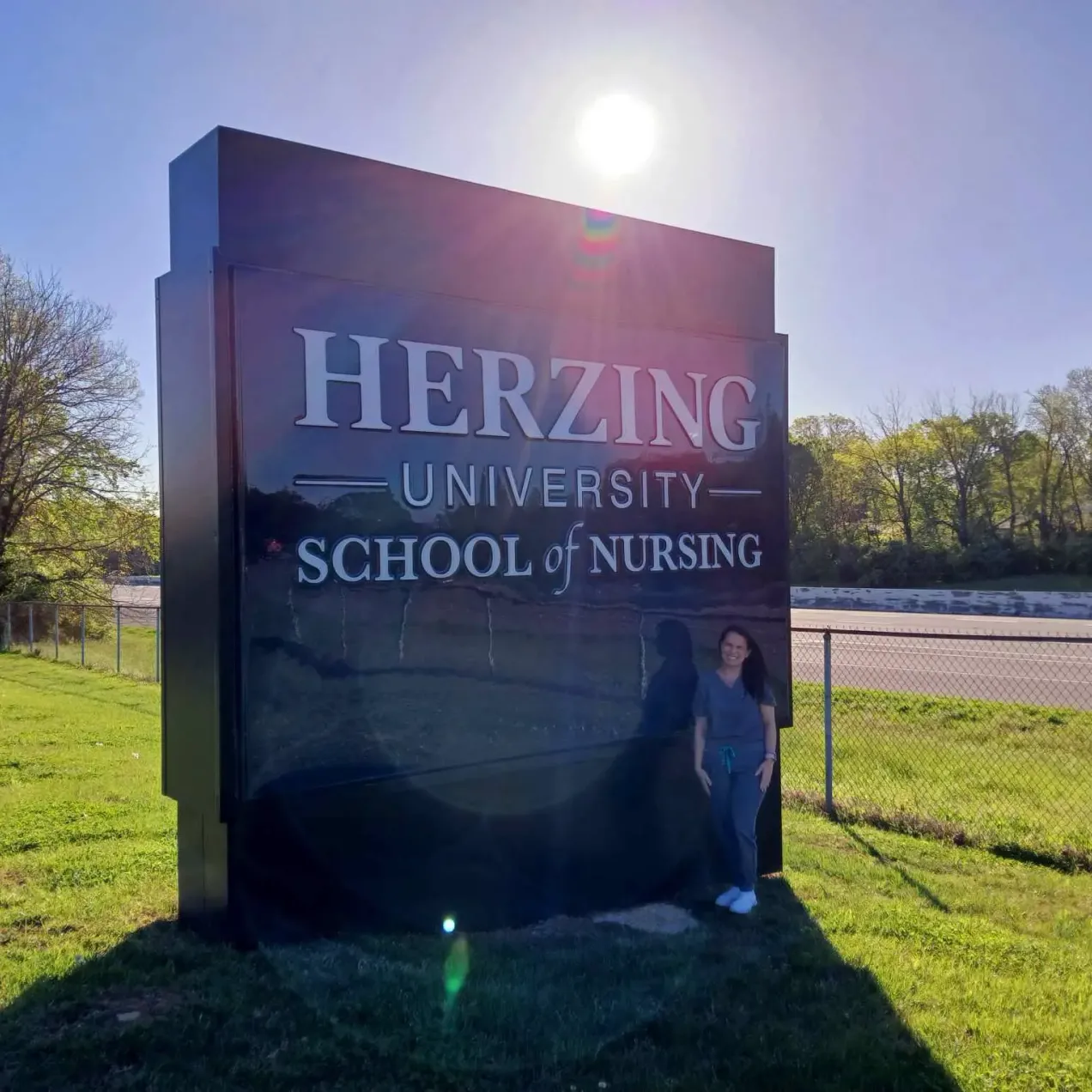
ASN Bridge admissions requirements
Requirements for enrollment in the Herzing University online Associate of Science in Nursing (ASN) bridge option include:
- A high school or previous college grade point average (GPA) of 2.5 or higher.
- Achieve at least a composite score of 66 on the most current version of the Test of Essential Academic Skills (TEAS); TEAS score must be from within three years of anticipated date of matriculation.
- Students who have failed one or more nursing courses in another nursing program are not eligible to enroll in the online ASN.
Eligible states for enrollment:
- Florida
- Hawaiii
- Idahoi
- Illinois
- Indiana
- Iowai
- Kansasi
- Kentucky
- Marylandi
- Michigan
- Missouri
- North Carolina
- Ohio
- Oklahomai
- South Carolina
- South Dakotai
- Wisconsin
iAt this time, we have reached full enrollment capacity for prelicensure nursing students from Hawaii, Idaho, Iowa, Kansas, Maryland, Missouri, Oklahoma, and South Dakota. We carefully manage enrollment to ensure a high-quality educational experience for every student. Please check back for future updates to enrollment status.
BSN Bridge admissions Requirements
To qualify for the BSN bridge option, you must be a licensed practical nurse (LPN), paramedic, military medic, respiratory therapist, or cardiovascular technologist.
Additional requirements include both a GPA requirement and minimum benchmark scores on the Test of Essential Academic Skills (TEAS):
| Prior education | High school diploma or equivalent, PN diploma |
| Minimum GPAi | 2.5 |
|---|---|
| Minimum TEAS score | 66 |
| i. Students with 24 or more transferable collegiate credits will be assessed on their collegiate cumulative GPA. Otherwise, the high school GPA will be used. | |
Eligible states for enrollment:
iAt this time, we have reached full enrollment capacity for prelicensure nursing students from Alabama, Colorado, Hawaii, Iowa, Kansas, Maryland, Missouri, Oklahoma, and South Dakota. We carefully manage enrollment to ensure a high-quality educational experience for every student. Please check back for future updates to enrollment status.
iiAustin, Dallas, Houston, San Antonio, and Waco regions only
I don’t meet the enrollment requirements. Do I have any other options?
Yes! You still have multiple educational pathways to becoming an RN even if you don’t qualify for the Online BSN Bridge option today:
Accreditation & Recognition
Our accredited & recognized online school
We strive to earn rank as one of the top private, nonprofit universities in the United States. Just as you work every day to become the best version of yourself, so do we as a university.
We are proud to have attained institutional and programmatic accreditation in addition to industry recognition for our accomplishments helping students earn a college education and find career success.
✝The baccalaureate degree program in nursing at Herzing University Madison is accredited by the Commission on Collegiate Nursing Education (http://www.ccneaccreditation.org). Herzing University is approved to offer programs in an online learning modality through association with the main campus in Madison, Wisconsin.
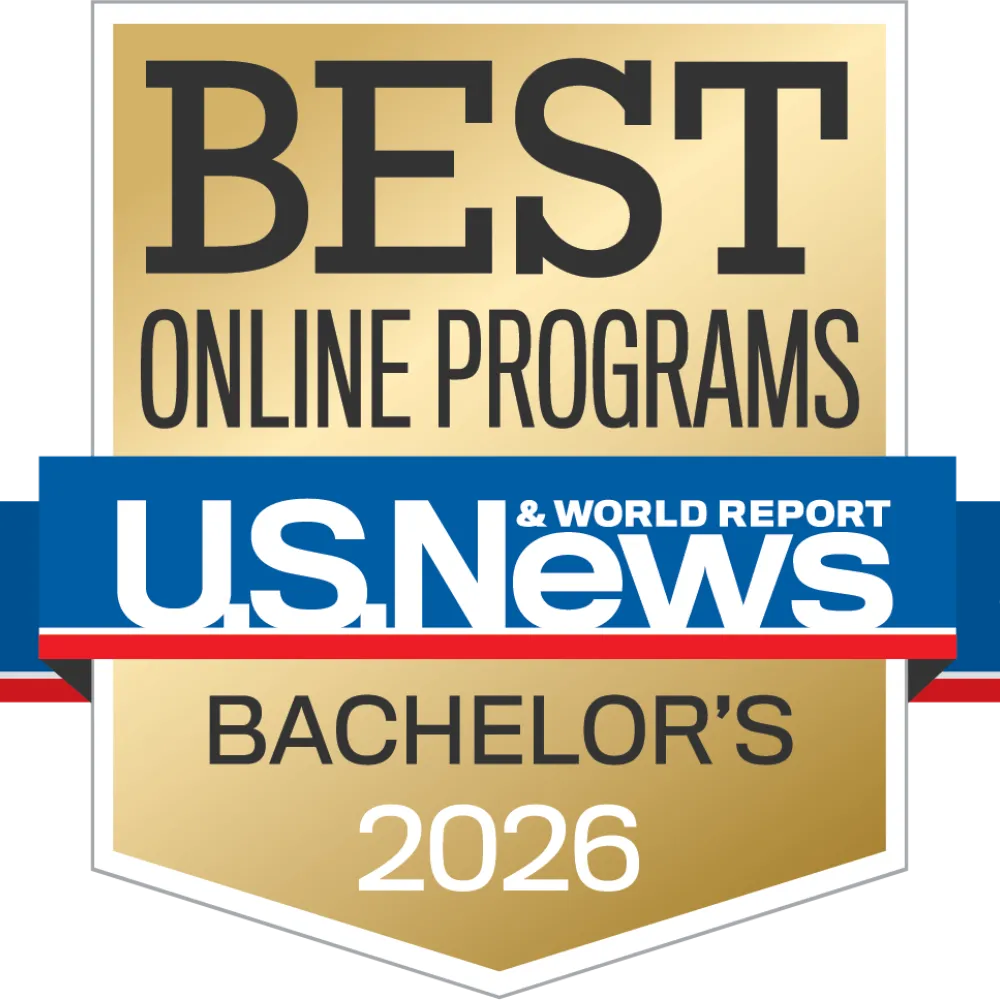
Ranked by U.S. News & World Report among the best online bachelor’s degree programs in 2026.
Herzing University is institutionally accredited by the Higher Learning Commission (hlcommission.org), a regional accreditation agency recognized by the U.S. Department of Education.
Waived Enrollment Fee
Discover the educational pathway designed to maximize your career potential. Reach for greater heights with Herzing University.
Going from CVT to RN
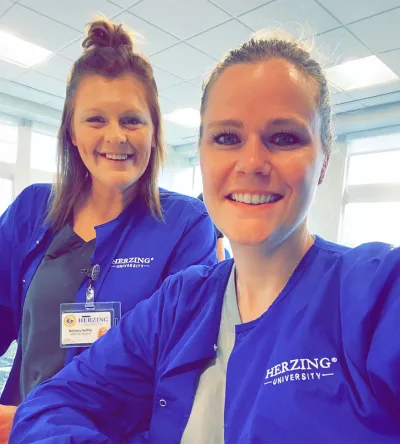
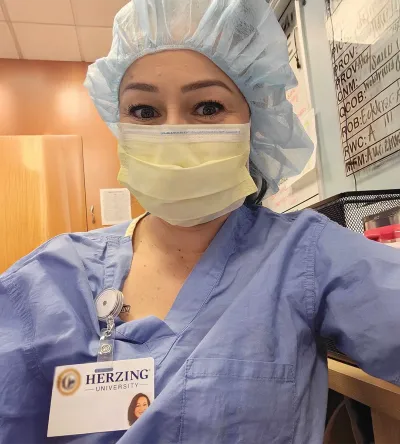
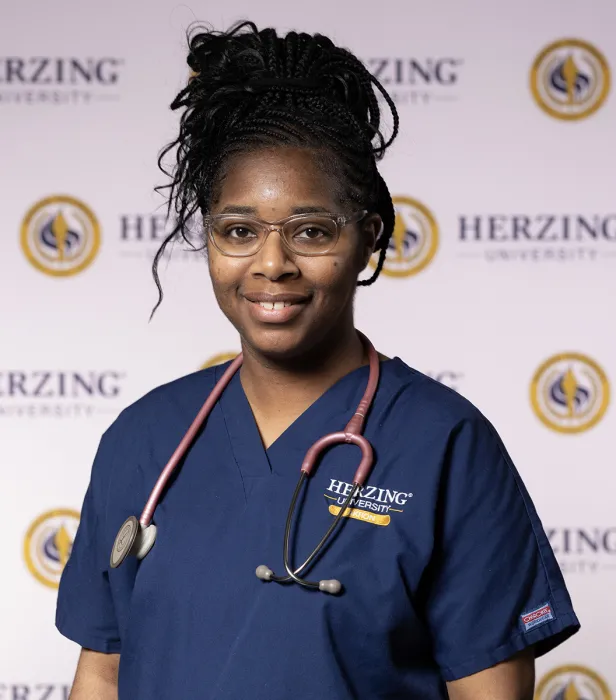
Transitioning from cardiovascular technologist to RN means expanding on your medical-based cardiovascular education into the more holistically-focused field of nursing.
As a registered nurse, you’ll be the backbone of day-to-day operations in many healthcare settings. Your duties can include:
- Develop and direct treatment plans
- Counsel patients and family members
- Ensure patient comfort
- Serve as the key connection between doctors and patients
Registered Nurse ranks as the #18 Best Healthcare Job for 2025 according to U.S. News & World Report.
Can I specialize? While a nursing degree curriculum can introduce a wider spectrum of course topics, RNs can specialize in an area of their choosing with enough education and experience. You may be able to use your experience as a CVT to help become a cardiac nurse in the future.
Job outlook and pay potential
According to the Bureau of Labor Statistics, employment of registered nurse is expected to increase 5% from 2024-2034.*
Registered nurses earn an average salary of $98,430 per year ($47.32 per hour). That represents a raise for the average cardiovascular technician/technologist in the US ($72,890 per year, $35.04 per hour).
You can take a big step forward in your nursing career by becoming an registered nurse.
Waived Enrollment Fee
Discover the educational pathway designed to maximize your career potential. Reach for greater heights with Herzing University.
Faq
Frequently Asked Questions
Didn't find the answer to your question? Send us an inquiry and we will be happy to answer all your questions!
"Registered nurse" represents a broad category of potential duties involving many areas of healthcare. The typical roles and responsibilities of an RN span several categories, including:
We offer online associate, bachelor's, and master's degree pathways for those without nursing experience looking to become an RN. Eligibility varies by state of residence.
Learn more about our online nursing programs designed for non-nurses.
Because nurses with a BSN have earned that next degree level and generally have the edge on the job market, they will on average earn a slightly higher salary than nurses with an ASN. However, there are always exceptions; an ASN with several years of an experience may earn a higher salary than an RN with a BSN who is just starting their career.
You don’t need a bachelor’s degree in nursing to become a registered nurse. Earn your associate’s degree in nursing and you can become an RN more quickly and earn your first set of scrubs.
However, if your goal is to continue climbing the ladder to become a nurse practitioner or pursue roles in nursing leadership or administration, you may be best off enrolling in a BSN program so you can reach your goals faster.
No matter what you choose, Herzing is here to empower you to become the best nursing professional you can be.
There’s nothing easy about being a registered nurse. Nurses with a thirst for knowledge, compassion, empathy, self-awareness and a constant focus on lifelong learning are truly exceptional.
Learn more about what makes a good nurse, from the quality of the care you provide to the confident smile you wear every day.
It’s a question of:
- What your goals are
- How quickly you want to reach them
If your goal is to go from LPN to RN quickly, the best choice may be an associate’s degree program since you may be able to become an RN in less than 2 years.
If your goal is to become an RN and potentially advance further by working towards a master’s degree in nursing (MSN), your best option is a bachelor’s degree in nursing program.
Read about the most basic differences between ADN vs. BSN and discover what's best for you.
While cardiovascular technicians and technologists assist physicians in diagnosing and training heart disease and heart-related conditions, RNs provide a broader range of care with greater emphasis on holistic care of the whole person.
CVTs can have a more distinct set of hands-on tasks they regularly perform, trained for certain invasive or noninvasive cardiovascular procedures.
RNs must be familiar with a wide scope of knowledge and procedures. While RNs can specialize in cardiology, they can also specialize in many other areas and discover opportunities to advance their practice in the future.
There are many different nursing specialties to choose from. Depending on your personality, educational background and preferred working environment you can follow your own personalized path in the nursing profession.
Here are a few popular nursing specialties you may consider:
- Aesthetic or Cosmetic nurse
- Assisted living nurse
- Cardiac/cardiovascular nurse
- Emergency room nurse
- Flight nurse
- Home health nurse
- Labor and Delivery nurse (L&D)
- Med/surgical nurse
- Neonatal/NICU nurse
- Nurse Anesthetist
- Nurse paralegal
- Oncology nurse
- Pediatric nurse
- Public health nurse
- School nurse
- Travel nurse
You can take our nursing personality quiz to get a better idea of what you might prefer in your nursing career.
The Student Experience at Herzing
I would advise anyone to join the ADN program!
Karene Hyman
Nursing | Birmingham CampusWhen my previous college closed down, I thought my life was over and I would never become a nurse. Then I discovered Herzing University. They were my lifesaver!
Kristina Cole
Nursing | Akron CampusLeadership, quick thinking, and the ability to admit to and learn from your mistakes are important to a nurse’s success. Herzing graduates do well in those areas, and they also show compassion and the desire to be a caring nurse.
Kendra Mullick
Nursing | Atlanta CampusYou need to bring compassion to the job each day. I can promise you that any patient you see might look at you and say, ‘I want that to be me someday.'
Michelle Snyder
Nursing | Online CampusI’m amazed at how quickly things went by – I’m already done!
Eileen Saint-fleur
Nursing | Orlando CampusDisclosures
- Eligible states for enrollment (online BSN): Alabama, Colorado, Hawaii, Florida, Illinois, Indiana, Iowa, Kansas, Kentucky, Maryland, Michigan, Missouri, North Carolina, Ohio, Oklahoma, South Carolina, South Dakota, Tennessee, Texas (Austin, Dallas, Houston, San Antonio, and Waco regions only), Virginia, and Wisconsin.
Eligible states for enrollment (online ASN): Florida, Hawaii, Iowa, Idaho, Illinois, Kansas, Kentucky, Maryland, Michigan, Missouri, North Carolina, Ohio, Oklahoma, South Carolina, South Dakota, and Wisconsin.
At this time, we have reached full enrollment capacity for prelicensure nursing students from Alabama, Colorado, Hawaii, Idaho, Iowa, Kansas, Maryland, Missouri, Oklahoma, and South Dakota. We carefully manage enrollment to ensure a high-quality educational experience for every student. Please check back for future updates to enrollment status.
Accreditation Commission for Education in Nursing (ACEN), 3390 Peachtree Road NE, Suite 1400, Atlanta, GA 30326, (404) 975-5000; View the public information disclosed by the ACEN regarding this candidate program at http://www.acenursing.com/candidates/candidacy.asp. Note: Upon granting of initial accreditation by the ACEN Board of Commissioners, the effective date of initial accreditation is the date on which the nursing program was approved by the ACEN as a candidate program that concluded in the Board of Commissions granting initial accreditation.
Herzing University is accredited by the Higher Learning Commission (hlcommission.org), an institutional accreditation agency recognized by the U.S. Department of Education.
Recent Blog Posts
Waived Enrollment Fee
Discover the educational pathway designed to maximize your career potential. Reach for greater heights with Herzing University.

